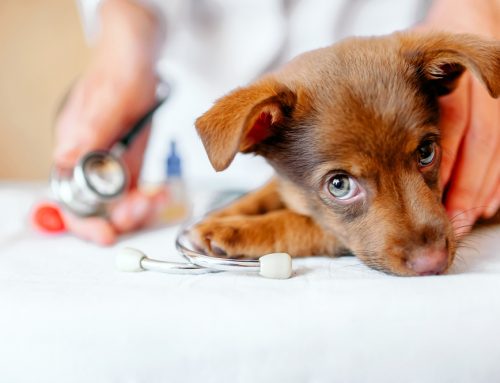You may not think twice when you see your dog swimming in a pond, or lapping up water from a stream, but both of these actions could put them—and you—at risk for contracting leptospirosis, a disease caused by the spiral-shaped bacterium, Leptospira. This disease can affect most mammals, but is more commonly seen in cattle, pigs, horses, and dogs. The good news for cat owners is that their feline friends seem fairly resistant to the disease. In addition to causing potentially irreversible or fatal organ damage in dogs, leptospirosis is zoonotic, meaning it can be transmitted from animals to humans. Thus, ensuring that dog owners are aware of leptospirosis, for the sake of their dog as well as themselves, is vital.
Ways your dog could contract leptospirosis
Leptospira organisms are shed in the urine of infected domestic or wild animals for weeks to months, and can enter your dog’s body through the mucous membranes (e.g., eyes, nose, or oral cavity) or through a cut or scrape in the skin. The organism may infect your dog through contact with infected urine or urine-contaminated grass, soil, feed, or water. Occasionally bite wounds, consuming tissue from an infected animal, or mating can also lead to leptospirosis transmission. While leptospirosis was previously more common in dogs in rural areas, the disease is now seen in dogs from rural, suburban, or urban environments, because of the wide variety of mammals that can shed Leptospira in their urine, and the close proximity of wildlife.
Signs your dog could have leptospirosis
Some dogs are asymptomatic, while others may suffer from the following:
- Fever
- Joint or muscle pain, and reluctance to move
- Lethargy or loss of appetite
- Increased thirst
- Increased or decreased urine production
- Jaundice (i.e., yellow skin and mucous membranes)
- Vomiting and diarrhea
- Nosebleeds, bruising
- Bloody stool, urine, or vomit
- Difficulty breathing
- Fluid accumulation in legs, chest, or abdomen
If your pet is exhibiting some of these signs, promptly contact Animal Clinic of Council Bluffs, as leptospirosis can lead to potentially irreversible kidney or liver failure, or significant bleeding problems, all of which could be fatal.
How leptospirosis is diagnosed in dogs
If your dog is showing leptospirosis signs, our Animal Clinic of Council Bluffs team will perform a variety of tests, including:
- Blood chemistry —This test can detect leptospirosis-induced damage to the kidneys, liver, or muscles.
- Urinalysis — Increased urine protein levels and abnormal urine concentration may indicate acute kidney injury from leptospirosis.
- Leptospirosis testing —Tests that detect the Leptospira organism, or the presence of antibodies (i.e., proteins made by the immune system in response to Leptospira exposure), can help confirm a leptospirosis diagnosis.
Treatment for leptospirosis in dogs
After diagnosis, our veterinary team will devise a treatment plan specific to your dog, which may involve:
- Antibiotics — Antibiotics are used to combat Leptospira bacteria in your dog’s body.
- Fluid therapy — While your dog is hospitalized, our team may administer IV fluids to correct dehydration or electrolyte abnormalities, or address kidney failure.
- Supportive care — Our veterinarians may also prescribe medications that decrease vomiting or nausea, protect the stomach, or manage kidney or liver failure effects.
With correct and aggressive treatment, your dog with leptospirosis has an 80% survival rate, but their kidney or liver function may be permanently impaired. Thus, you must seek veterinary attention for your dog as soon as they start showing leptospirosis signs.
Leptospirosis prevention in dogs
Our Animal Clinic of Council Bluffs veterinarians can administer a leptospirosis vaccination to prevent your dog from becoming sick, and decrease the likelihood of shedding Leptospira in their urine, should they be exposed. Each time you bring your pet to the clinic for a wellness visit, our team will assess your dog’s lifestyle, age, and environment, to determine if a leptospirosis vaccination is appropriate. To add an additional protective layer, keep your pet away from water sources that could be contaminated with animal urine.
Leptospirosis in people

While people are more likely to contract leptospirosis from recreational activities in contaminated water, transmission from animals to humans is possible. If your dog is diagnosed with leptospirosis, avoid contact with their urine, wear gloves if you must clean up urine, and wash your hands frequently. People who are immunosuppressed or pregnant should consult their doctor, to determine if they should take additional precautionary measures. In people, leptospirosis generally causes flu-like symptoms, but can lead to kidney or liver failure, or other detrimental side effects, especially in higher-risk groups.
To ensure your dog is protected against leptospirosis, contact our Animal Clinic of Council Bluffs team. We would be happy to review your dog’s disease risk, and determine if vaccination is a good choice.






Leave A Comment